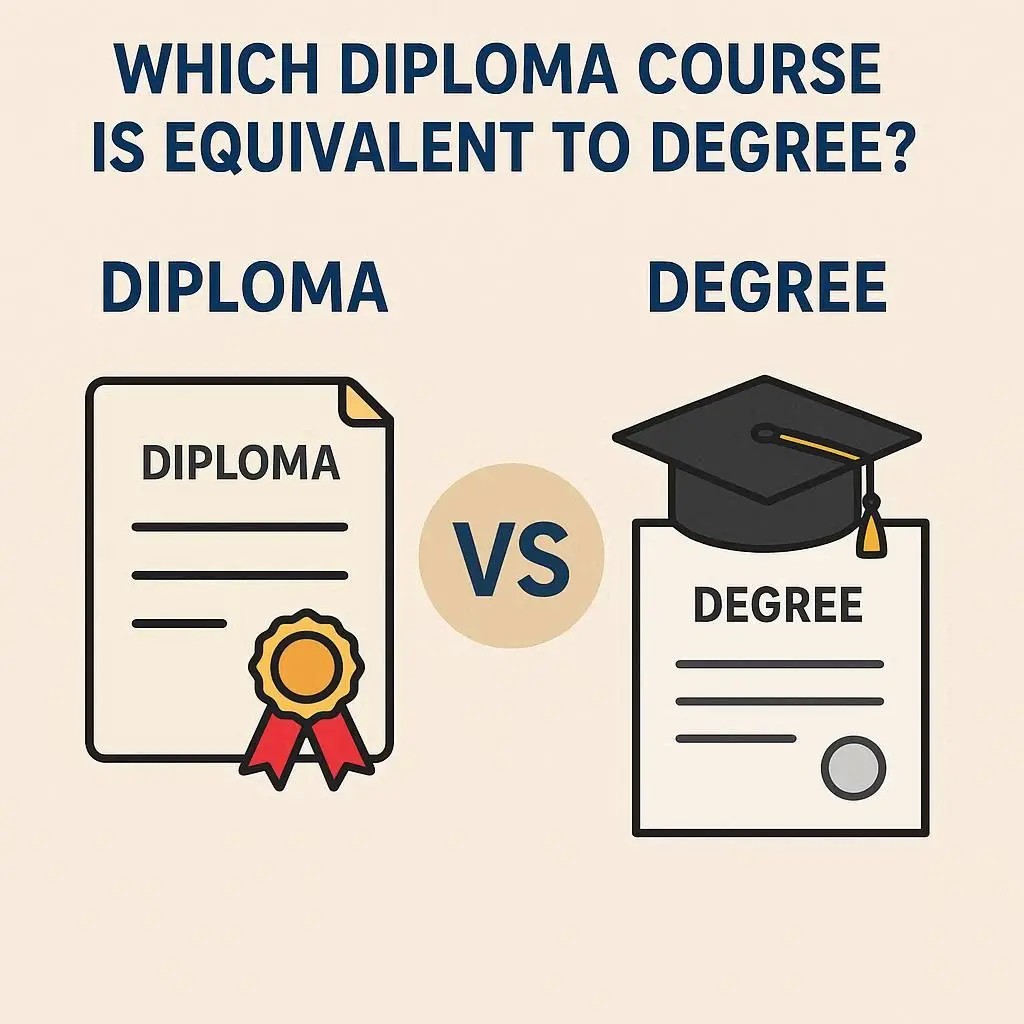Diploma vs. Degree
An interactive guide to understanding which diploma courses are considered equivalent to a university degree and how to leverage them for your career.

What Makes a Diploma "Degree-Equivalent"?
While no diploma is a literal degree, certain advanced qualifications are recognized as equivalent in academic level and professional standing. This equivalence is determined by national qualification frameworks, program duration, depth of curriculum, and industry acceptance. They are often pathways to Master's programs or senior professional roles.
Post Graduate Diploma (PGD)
Often taken after a bachelor's degree, these programs offer specialized, practical knowledge in a specific field. Many universities accept a PGD for entry into a Master's program, sometimes with credit exemptions.
Level 7 Diplomas (UK/Europe)
In frameworks like the UK's Regulated Qualifications Framework (RQF), a Level 7 diploma is benchmarked at the same academic level as a Master's degree, post-graduate certificate, or PGD.
Professional Body Qualifications
Certifications from esteemed professional bodies (e.g., ACCA in accounting, CIM in marketing) can hold weight equivalent to or even greater than a degree within their specific industries.
Interactive Comparison
Select a qualification to see how it stacks up against a traditional Bachelor's Degree. This comparison uses typical averages and can vary by country and institution.
Post Graduate Diploma
A Level 7 qualification focusing on specialized, practical skills for career advancement or a pathway to a Master's.
Bachelor's Degree
A Level 6 qualification providing broad, theoretical foundational knowledge in a subject area.
How to Identify and Verify Equivalence
Check National Qualification Frameworks (NQF/AQF/RQF)
These frameworks officially classify qualifications by level. A diploma at Level 6 or 7 is often considered equivalent to a Bachelor's or Master's level, respectively.
Accreditation and Awarding Body
Ensure the institution is accredited and the diploma is awarded by a recognized body. This is crucial for acceptance by employers and other universities.
University Progression Routes
Check if universities explicitly list the diploma as a valid entry qualification for their Master's degree programs. This is a strong indicator of equivalence.
Industry Recognition
Look for endorsements from professional organizations and see if employers in your target field list the diploma in their job requirements.
Benefits of a Degree-Equivalent Diploma
Faster Completion
Typically 1-2 years, allowing for quicker entry or re-entry into the workforce.
Cost-Effective
Tuition fees are often lower than a full 3-4 year degree program.
Practical Focus
Curriculum is heavily focused on job-ready skills and practical application.
Specialized Knowledge
Offers deep dives into niche areas, making you an expert in a specific domain.
Are Diploma Equivalents Recognized Internationally?
Recognition varies. While many countries with similar educational systems recognize each other's qualifications, it's not universal. For migration, employment, or further study abroad, a formal credential evaluation is often required.
Credential Evaluation Services
Organizations like World Education Services (WES), ECE, and ICAS provide assessments that compare your academic accomplishments to standards in the U.S. and Canada. A positive evaluation report stating your diploma is equivalent to a U.S. Bachelor's or Master's degree is the gold standard for international recognition.
Using Your Diploma for Career Advancement
Acquire a High-Level Diploma
Complete an accredited, degree-equivalent diploma (e.g., PGD, Level 7) in a high-demand field.
Leverage for a Better Job or Promotion
Use your specialized skills to apply for senior roles or negotiate a promotion. Highlight the practical, industry-relevant projects you completed.
Pathway to a Master's Degree
Use the diploma to gain advanced standing in a Master's program. You may be able to complete your Master's in just one year.
Achieve Senior/Executive Roles
The combination of a diploma, a potential Master's degree, and practical experience positions you for leadership roles in your industry.